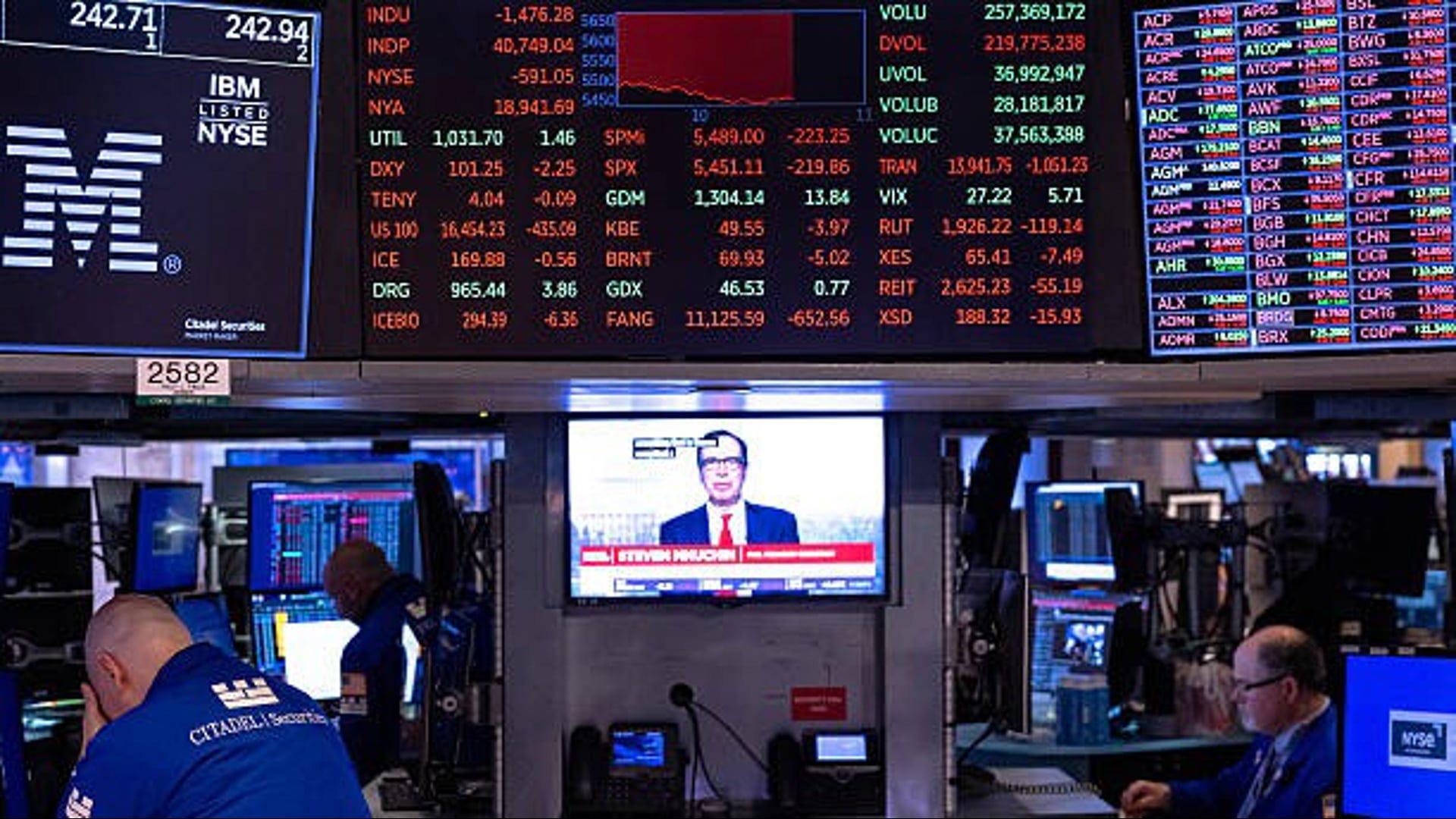Trump says he's not considering a pause on tariffs but is open to negotiations

WASHINGTON ― President Donald Trump said Monday he’s not considering pausing his sweeping tariffs that have sent the stock market spiraling but he is willing to engage in negotiations with other countries.
Yet even as he signaled an openness to hear out world leaders' concerns with the steep tariffs, Trump said that doesn't mean the tariffs won't be permanent.
“They can both be true,” Trump said. “There can be permanent tariffs and there can also be negotiations because there’s things we need beyond tariffs.”
Trump defended the larger-than-expected tariffs on all imports to reporters in the Oval Office at the top of a bilateral meeting with Israeli Prime Minister Benjamin Netanyahu, who made his second trip to the White House since Trump was inaugurated in January.
“We’re not looking at that,” Trump said when asked about a potential pause on his tariffs, which rattled the stock market for the third consecutive trading day on Monday. The Dow Jones Industrial Average dropped 367 points.
“We have many, many countries that are coming to negotiate deals with us,” Trump added. "They're going to be fair deals, and in certain cases, they're going to be paying substantial tariffs."
Trump said he agreed to meet with Japanese leaders to begin trade negotiations following a phone conservation he had with Shigeru Ishib. Trump said he told Ishib the Japanese will have to begin purchasing U.S. automobiles for him to change U.S. trade policy with Japan.
"I said one thing, you're going to have to open up your country, because we sell no cars ‒ like zero cars ‒ in Japan, and they sell millions of cars into our country," Trump said.
One country Trump is not entertaining negotiations with is China, which he threatened Monday with an additional 50% tariff if Beijing does not with withdraw its new 34% retaliatory tariffs on U.S. exports. The new tariff on China would be in addition to 54% tariffs Trump has already slapped on China.
Trump last week imposed a 10% minimum tariff on all imports and even higher reciprocal tariffs on the U.S.'s biggest trading partners, including China and the European Union. The baseline tariff went into effect Saturday, and the reciprocal tariffs will begin Wednesday.
Trump has argued that higher tariffs — which seek to roll back decades of globalization — are critical to rejuvenate America's declining domestic manufacturing sectors and create a level playing field with other countries that impose tariffs on U.S. exports.
"Nobody but me would do this," Trump said, defending the tariffs. "You know, it's nice to serve a nice easy term, but we have an opportunity to change the fabric of our country. We have an opportunity to reset the table on trade."
Reach Joey Garrison on X @joeygarrison.